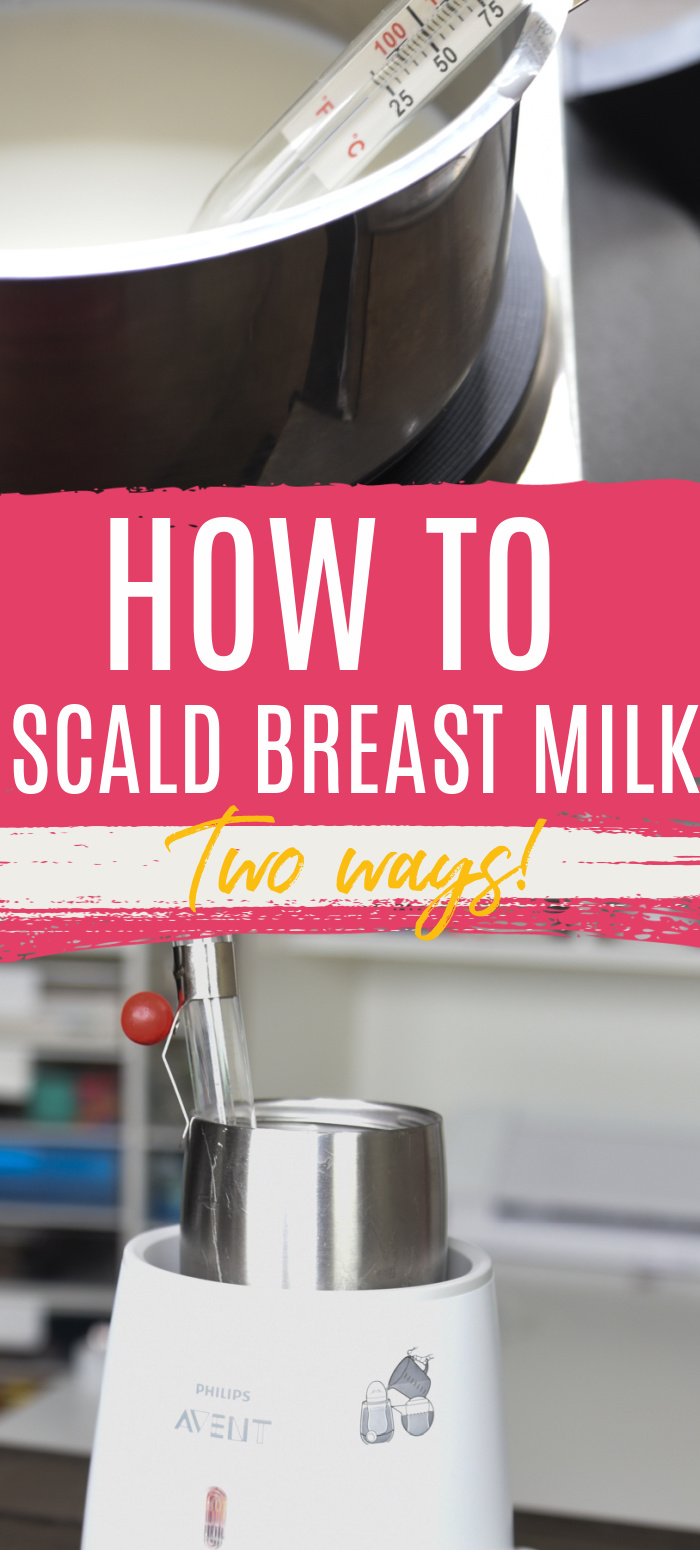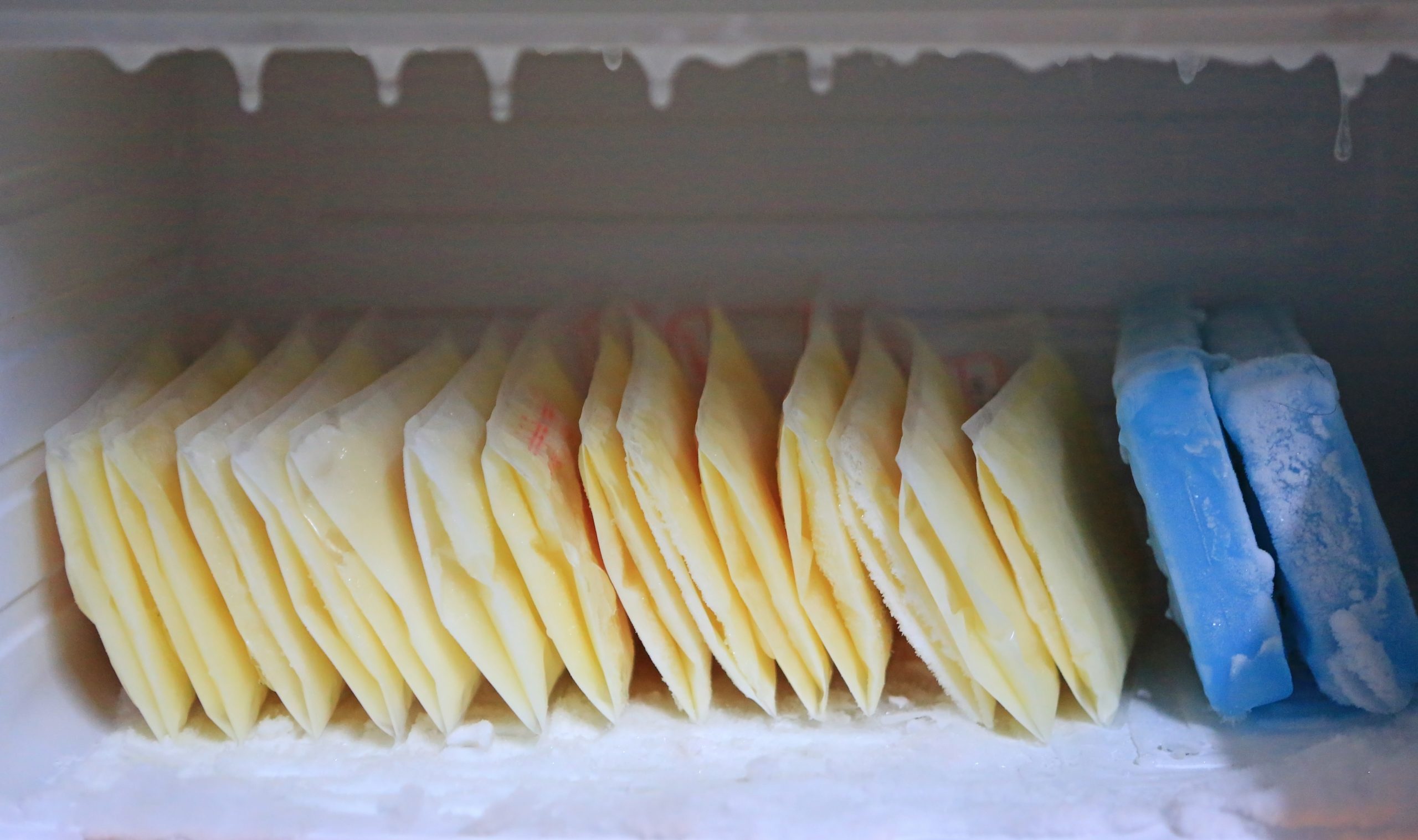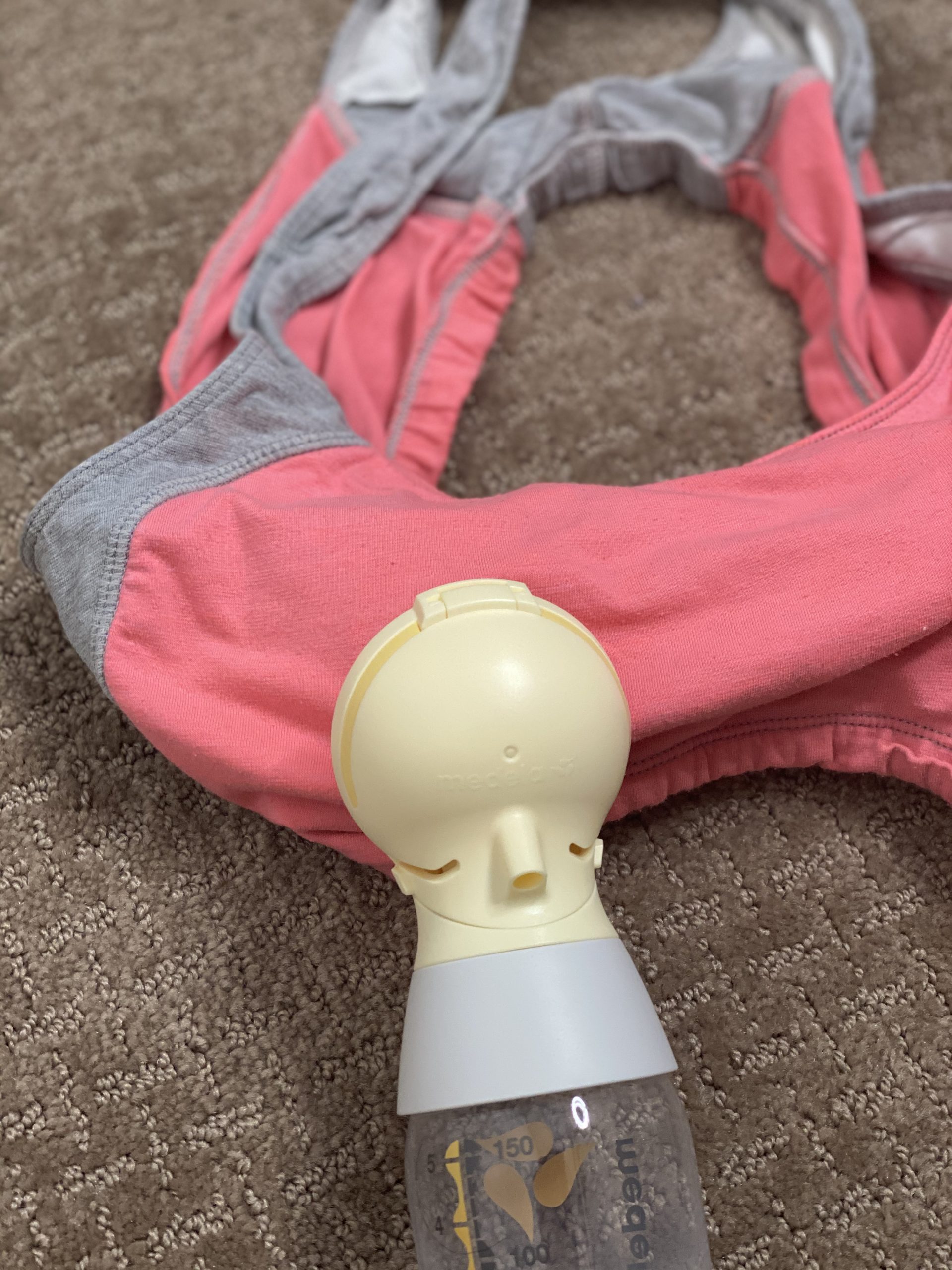If you are breast feeding your little one you may experience low milk supply. We are sharing some of the top causes of low milk supply to help you succeed on your breastfeeding journey.

Breastfeeding is a magical and fulfilling experience! But sometimes, it can be stressful and cause concern—especially if your milk supply is dropping. This can be devastating, and you’ll likely want to explore what’s going on and get to the bottom of it.
There are various reasons this could be happening. If you are experiencing low milk supply—or maybe some of the false signs of low milk supply—consider checking to see if any of these common reasons for low milk supply apply to you and your situation.
One of the best things you can do to prevent – or, if it’s unpreventable, at least help – low milk supply is education. Fuss-Free Milk Supply is the ultimate resource for breastfeeding moms to navigate all the ups and downs of milk supply – and it also includes my one-of-a-kind milk supply self-assessment to help you figure out what’s going on – and what to do next.








Insufficient glandular tissue, mammary hypoplasia–
This means that you don’t have the glandular tissue typically needed to produce a full supply of milk. You may have had less development of the glandular tissue during puberty or a lack of it during pregnancy.
Previous breast surgery
If you’ve had surgery for breast augmentation, reduction, or removal of cancer tissue, this can potentially lead to a decrease in milk supply if the milk-making ducts are damaged. If you are considering these surgeries and want to breastfeed in the future, make sure your surgeon knows this – there are options for preventing damage. BFAR.org is a GREAT resource for breastfeeding after reduction.
Scheduled feedings
Feeding on demand can be essential for having a good milk supply. I often work with moms who are on a strict breastfeeding schedule, and as soon as they start offering the breast more frequently, they see an increase in supply.
Postpartum complications
Some complications can happen after you have given birth, which can lead to a lower milk supply, such as a retained placenta (which can delay your milk from coming in, as your body thinks you still have a baby in there), excessive postpartum bleeding, and anemia.
Hormonal, Endocrine or Auto Immune problems
Certain medical conditions are linked to a lower milk supply, such as PCOS, thyroid problems, or diabetes (precisely Type 2 Diabetes). With PCOS, research has shown about 1/3 of women with this condition end up having low milk supply, 1/3 have no problems, and 1/3 have an oversupply.
If you are struggling with a milk supply problem that does not seem to respond to treatment, it can be valuable to look into underlying conditions.
Becoming pregnant while breastfeeding
While many women can successfully breastfeed during pregnancy, it’s not uncommon for the hormonal shifts to decrease supply. Around 20 weeks, milk will also transition back to colostrum, which some nursing children may not respond to.
Infrequent pumping or nursing or missing feeding sessions and not pumping in its place
Milk production is based on supply and demand. If you aren’t nursing or pumping frequently, or you don’t replace a missed nursing session with a pumping session, it’s not surprising to see a drop in supply. If you aren’t frequently stimulating the breast regularly, your body might think you don’t need to make it.
The key to making more milk is increasing breast stimulation.
Hormonal birth control
If you just started a new form of birth control and saw a dip in supply – that might be the culprit. While there are plenty of breastfeeding-compatible birth control methods, there are many that have a big potential for dropping supply – especially those that are estrogen-based.
Infant anatomical issues
Cleft lips, palates, or tongue and lip ties can lead to poor transfer and low supply. If your child is having trouble transferring, working with an IBCLC is an essential step in devising a plan.
The return of your period
Menstruation sure can cause problems, can’t it?! Many women experience a drop in milk supply when their period returns. Some find that it happens around ovulation, and some find it happens a few days before their period starts.
I found that it more inhibited my letdown – once that started, the milk would flow. But it takes a while to get to that point.
A calcium + magnesium supplement can help combat the effects of your period on milk supply.
Overfeeding with a bottle
If a baby is being overfed with a bottle, it can make them less hungry when you try to nurse, leading to low milk supply.
On the other hand, if appropriate bottle amounts aren’t given, it can lead to the allusion that your milk supply is low, when in reality, the bottle amounts should just be adjusted.
Click here for our bottle intake calculator.
Supplementing
Supplementing can be necessary. However, adequate support and tips for maintaining supply can lead to a decrease or total loss of supply.
If you need to supplement, I strongly recommend working with an IBCLC to determine the best way to do so.
Baby Sleeping Through the Night
Ah, your baby sleeping longer can be such a double-edged sword. If your baby is naturally lengthening the time of sleep at night and eating a lot during the day – it won’t necessarily affect your supply. Slow and steady often is better than drastic changes.
However, many mothers find that if their baby is sleeping all night long or for longer than 5 hours at night, they notice a decrease in supply. If you experience this, you can try a dream feed or pump at some point during the night.
Sleep training—especially when it’s done early on—can also contribute to a mom’s decreased milk supply.
You aren’t drinking enough fluids.
Staying hydrated while breastfeeding is essential—you don’t want to be overhydrated or underhydrated. Drink to your thirst and a little bit more! Learn more about breastfeeding and water here.
Jaundice
Jaundice is a common condition in newborn babies. It can make your baby sleepier and nurse less efficiently, so they might be unable to help establish your milk supply as strong as they might have otherwise. Some mothers who have jaundiced babies end up struggling with supply.
Pacifiers
Pacifiers certainly have their benefits, but if they are given to alleviate the problem of a baby who wants to eat, they can decrease the supply. Any extra suckling from your baby can help stimulate production.
Here are a few posts about pacifiers and breastfeeding that you might find helpful:
- The Best Pacifiers for a Breastfeeding Baby – Mother-Recommended Options!
- Pacifiers and Breastfed Babies: What All New Parents Need to Know
Sleep
Not getting enough rest can lead to you being exhausted and maybe not nursing as frequently as you may otherwise.
Smoking tobacco
Tobacco and smoking can inhibit your letdown, which can make you feel like you don’t
Nutrition–
If you exclusively breastfeed, you must eat an additional 500 calories daily. Not eating enough calories can cause a dip in supply. If you struggle to find enough to eat, check out our breastfeeding and postpartum meal plan.
Medications and Herbs
While many medications are compatible with breastfeeding, certain medications and herbs can contribute to low milk supply – including some antihistamines. Large amounts of sage, parsley, and peppermint can also affect milk production.
The app “MommyMeds” is an excellent resource for checking medication compatibility with breastfeeding, as is InfantRisk.
Illness
Mom or baby being sick can lead to a decrease in supply because of the chances that you’ll be nursing less. It’s important to prioritize rest and recovery, but you also need to nurse or pump as much as you are able.
Drinking alcohol
I’ve discussed alcohol and breastfeeding in depth, and while some drinking may be acceptable for a breastfeeding mother, too much alcohol can inhibit the letdown reflex and lead to lower milk supply.
Stress
Stress doesn’t necessarily decrease milk supply. However, it can make you less likely to nurse and stimulate the breasts. Stress can also inhibit the letdown reflex.
Nipple piercings
In most situations, nipple piercings shouldn’t affect milk supply. However, scar tissue could build up around the nipple and milk ducts, affecting milk supply.
Find Support
Just because one of these factors exists doesn’t mean you can’t breastfeed. Your approach may just be different or altered (but not always). Being informed and working with a compassionate and knowledgeable lactation professional can make a huge difference. My team is available worldwide for virtual consults and would love to help you navigate your low-supply journey. You can book a consultation here!
There aren’t many hard and fast studies on how many women struggle with low milk supply, but estimates can be found between 5 and 15%
Even if it is on the lower end of that- that means there are still thousands of women each year struggling to breastfeed and struggling to find answers, and struggling to find someone who will give them the support and resources they need.
If you are struggling with a low milk supply- you have not failed.
Advocate for yourself and your baby. Some women will never be able to produce enough mik for their babies. For some, the answer is just not to even try.
And that’s okay!
But for those who want to give their baby whatever they can, there are things you can do! Every drop is valuable—and you are, too.
More Breastfeeding Posts You May Enjoy:
- Is Your Breastfeeding Baby Biting? Here’s What You Should Do.
- 8 Breastfeeding Problems After a C-Section (And What You Can Do!)
- 5 Essentials for Preparing to Breastfeed Your Baby
- Why Is Breastfeeding Painful?
- The Ultimate Guide to Dairy-Free Breastfeeding (From a Dairy-Free Mom)
- Breastfeeding and Alcohol: Everything You Need to Know
- High Lipase Breast Milk: Why Your Breast Milk Tastes Gross (and What You Can Do)
- Breastfeeding And Your Period










